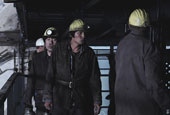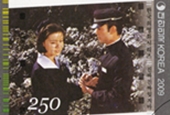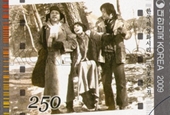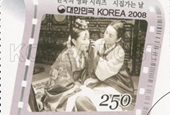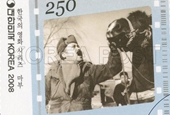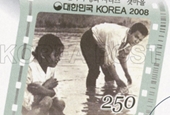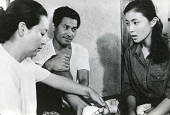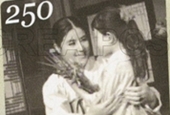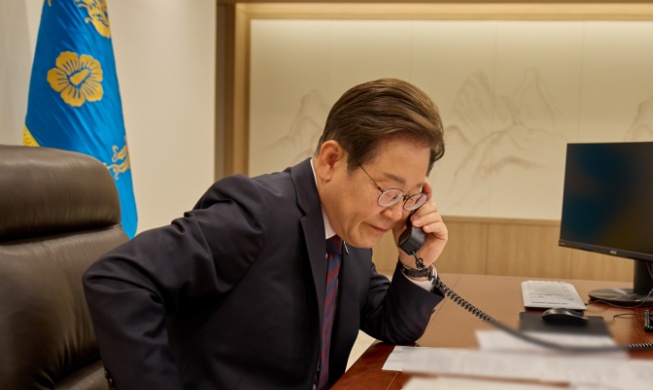The film "Ode to My Father" has stirred interest among U.S. media outlets.
The film is about a boy who grows up and then grows old living through Korea's turbulent modern history. He is also the eldest son and keeps a lifetime promise to his father he made when the family fled southward and sought refuge in Busan in 1950 during the Korean War. Since the movie's release on December 17, 2014, favorable reviews quickly spread by word of mouth. It has now become only the 11th film in the history of Korean cinema to break the 10 million tickets sold mark, as it did on January 13.
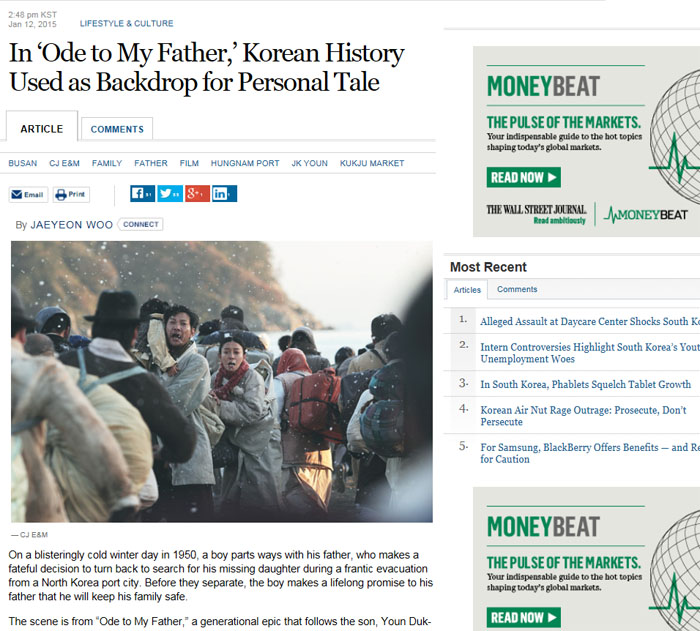
On January 12, the Wall Street Journal released an article about the movie, "In 'Ode to My Father,' Korean History Used as Backdrop for Personal Tale." The newspaper wrote that the protagonist, Deok-su, begins his life with, "the evacuation of 14,000 refugees by U.S. cargo ship SS Meredith Victory from Hungnam Port during the Korean War," and writes that, "Deok-su's Forrest Gump-like encounters with the country's influential figures, including Hyundai Group founder Chung Ju-yung, add humor to the film."
The newspaper also quoted director JK Youn who said, "The theme of this film is harmony and communication, not to incite social division. I hoped that young people would better understand their parents and grandparents by watching how hard their lives were.”
Youn also said that he made the movie because he wanted, "to say that I have tried my best to live well and that I really miss him," referring to his own father.
The Los Angeles Times also touched on the film in its article, "South Korean 'Ode to My Father' expertly mines human drama," on January 8. The daily described the film as, "Tugging shamelessly yet persuasively on the heartstrings," and wrote that, "director JK Youn, responsible for the tsunami blockbuster 'Tidal Wave,' has an undeniable knack for crafting crowd-rousing, character-driven spectacles."
"Each sequence is masterfully calibrated for maximum lip-quivering effect, swelling strings and all, but none jab at the tear ducts more than the re-creation of a 1983 live TV broadcast that reunited families displaced by the Korean War," the newspaper wrote, adding that the film handily topped the final "Hobbit" installment at the Korean box office.
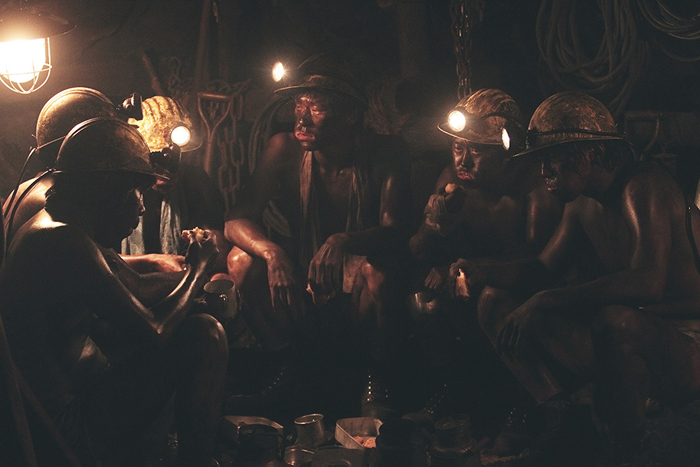
The Hollywood News wrote in its review of the film on January 4 that, "Like many Korean films, 'Ode to My Father' is focused on family life," and that, "we soon find ourselves heading back in time as we begin to understand protagonist Yoon Deok-su's attachment to his shop."
It also said that, "the powerful emotional segments bring in high moments of melodrama, but these are quickly complemented by rather broad comedic moments," and said this could be a film for the whole family, from young kids to great grandparents.
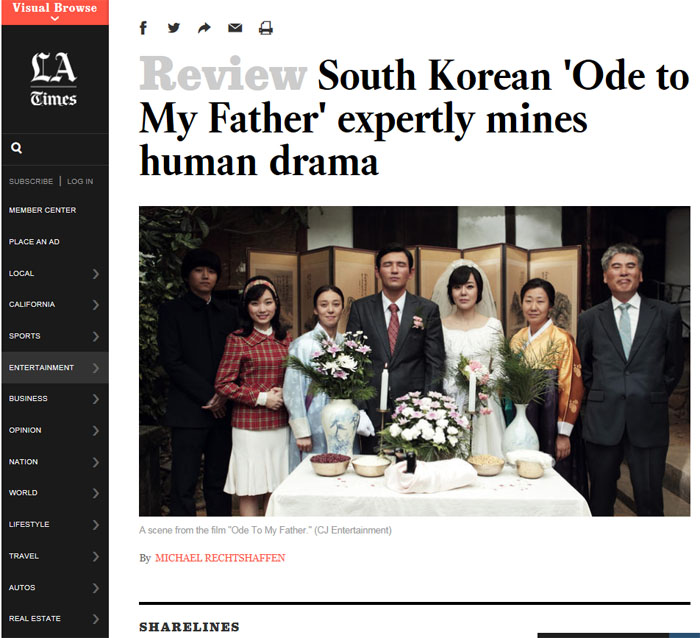
The film 'Ode to My Father' is showing at 40 theaters across the U.S. and is attracting many movie-goers. It has also been invited to the 65th Berlin International Film Festival's Panorama section.
By Limb Jae-un
Korea.net Staff Writer
Photos courtesy of CJ Entertainment
jun2@korea.kr
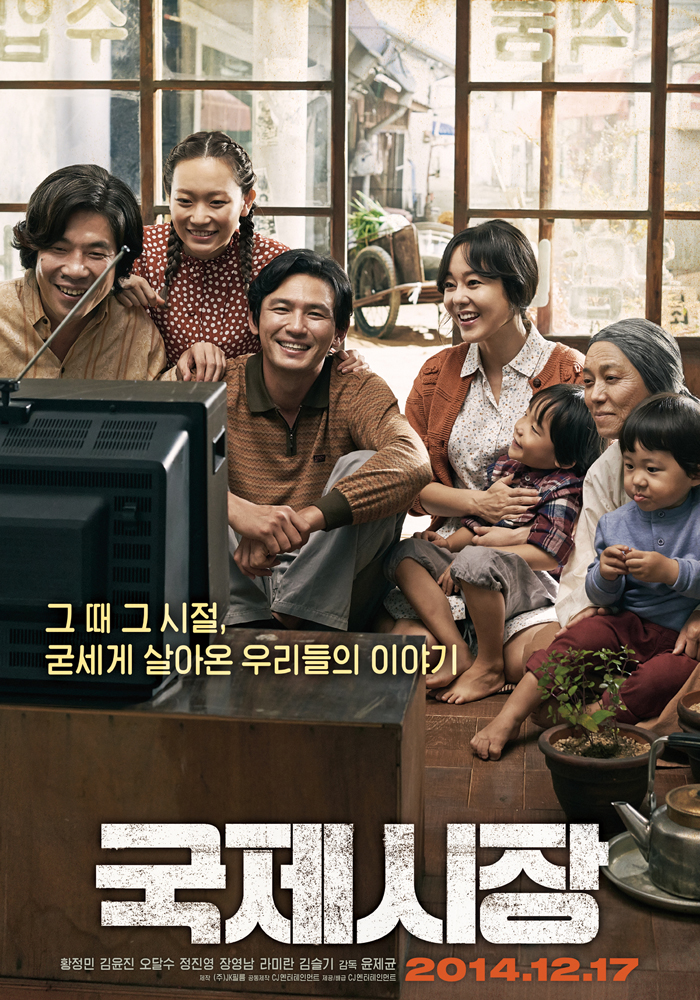

The film is about a boy who grows up and then grows old living through Korea's turbulent modern history. He is also the eldest son and keeps a lifetime promise to his father he made when the family fled southward and sought refuge in Busan in 1950 during the Korean War. Since the movie's release on December 17, 2014, favorable reviews quickly spread by word of mouth. It has now become only the 11th film in the history of Korean cinema to break the 10 million tickets sold mark, as it did on January 13.

A Wall Street Journal article about the film 'Ode to My Father' is released on January 12.
On January 12, the Wall Street Journal released an article about the movie, "In 'Ode to My Father,' Korean History Used as Backdrop for Personal Tale." The newspaper wrote that the protagonist, Deok-su, begins his life with, "the evacuation of 14,000 refugees by U.S. cargo ship SS Meredith Victory from Hungnam Port during the Korean War," and writes that, "Deok-su's Forrest Gump-like encounters with the country's influential figures, including Hyundai Group founder Chung Ju-yung, add humor to the film."
The newspaper also quoted director JK Youn who said, "The theme of this film is harmony and communication, not to incite social division. I hoped that young people would better understand their parents and grandparents by watching how hard their lives were.”
Youn also said that he made the movie because he wanted, "to say that I have tried my best to live well and that I really miss him," referring to his own father.
The Los Angeles Times also touched on the film in its article, "South Korean 'Ode to My Father' expertly mines human drama," on January 8. The daily described the film as, "Tugging shamelessly yet persuasively on the heartstrings," and wrote that, "director JK Youn, responsible for the tsunami blockbuster 'Tidal Wave,' has an undeniable knack for crafting crowd-rousing, character-driven spectacles."
"Each sequence is masterfully calibrated for maximum lip-quivering effect, swelling strings and all, but none jab at the tear ducts more than the re-creation of a 1983 live TV broadcast that reunited families displaced by the Korean War," the newspaper wrote, adding that the film handily topped the final "Hobbit" installment at the Korean box office.

The main character Deok-su in the film 'Ode to My Father' works in a mine in West Germany.
The Hollywood News wrote in its review of the film on January 4 that, "Like many Korean films, 'Ode to My Father' is focused on family life," and that, "we soon find ourselves heading back in time as we begin to understand protagonist Yoon Deok-su's attachment to his shop."
It also said that, "the powerful emotional segments bring in high moments of melodrama, but these are quickly complemented by rather broad comedic moments," and said this could be a film for the whole family, from young kids to great grandparents.

The LA Times described the film 'Ode to My Father' as, 'Tugging shamelessly yet persuasively on the heartstrings.'
The film 'Ode to My Father' is showing at 40 theaters across the U.S. and is attracting many movie-goers. It has also been invited to the 65th Berlin International Film Festival's Panorama section.
By Limb Jae-un
Korea.net Staff Writer
Photos courtesy of CJ Entertainment
jun2@korea.kr

A Korean poster for the film 'Ode to My Father.'
Related Contents
Most popular
- Military discharge sets stage for reunion of all 7 BTS members
- BTS to mark 12th anniversary of debut with 2-week festival
- Lee Jae-myung officially sworn in as nation's 21st president
- Presidents Lee, Trump discuss tariff deal in first phone talks
- President's 1st executive order is launch of economic task force
